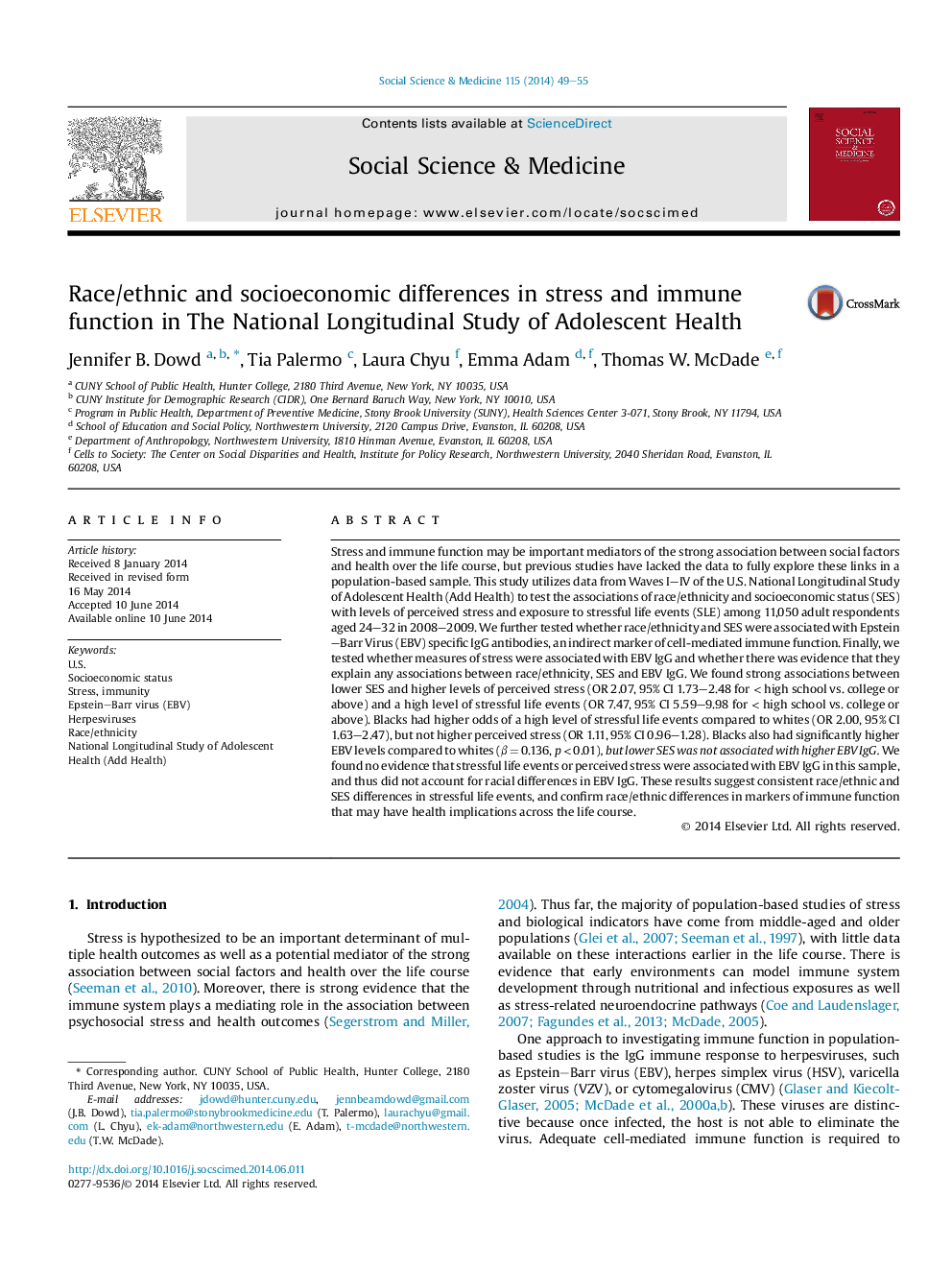| Article ID | Journal | Published Year | Pages | File Type |
|---|---|---|---|---|
| 952269 | Social Science & Medicine | 2014 | 7 Pages |
•Increased stress may inhibit immune function and damage health.•Lower SES was associated with more stressful life events and perceived stress.•Blacks reported more stressful life events but the same perceived stress as whites.•Black race/ethnicity, but not SES, was associated with worse immune function.•Neither stressful life events nor perceived stress predicted immune function.
Stress and immune function may be important mediators of the strong association between social factors and health over the life course, but previous studies have lacked the data to fully explore these links in a population-based sample. This study utilizes data from Waves I–IV of the U.S. National Longitudinal Study of Adolescent Health (Add Health) to test the associations of race/ethnicity and socioeconomic status (SES) with levels of perceived stress and exposure to stressful life events (SLE) among 11,050 adult respondents aged 24–32 in 2008–2009. We further tested whether race/ethnicity and SES were associated with Epstein–Barr Virus (EBV) specific IgG antibodies, an indirect marker of cell-mediated immune function. Finally, we tested whether measures of stress were associated with EBV IgG and whether there was evidence that they explain any associations between race/ethnicity, SES and EBV IgG. We found strong associations between lower SES and higher levels of perceived stress (OR 2.07, 95% CI 1.73–2.48 for < high school vs. college or above) and a high level of stressful life events (OR 7.47, 95% CI 5.59–9.98 for < high school vs. college or above). Blacks had higher odds of a high level of stressful life events compared to whites (OR 2.00, 95% CI 1.63–2.47), but not higher perceived stress (OR 1.11, 95% CI 0.96–1.28). Blacks also had significantly higher EBV levels compared to whites (β = 0.136, p < 0.01), but lower SES was not associated with higher EBV IgG. We found no evidence that stressful life events or perceived stress were associated with EBV IgG in this sample, and thus did not account for racial differences in EBV IgG. These results suggest consistent race/ethnic and SES differences in stressful life events, and confirm race/ethnic differences in markers of immune function that may have health implications across the life course.
